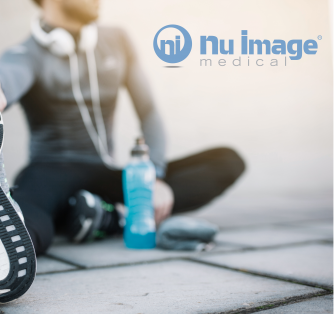Menu
Weight loss
Hormones
Sex
EXPLORE
MEET NU IMAGE MEDICAL
TREATMENTS
MEET NU IMAGE MEDICAL
TREATMENTS
MEET NU IMAGE MEDICAL
Unveiling the Hidden Dangers of Chronic Dehydration


Over 650 million people around the world face the threat of chronic dehydration, as they don’t have regular access to clean drinking water. Even in the United States, dehydration is a serious concern for around 75% of the nation’s citizens. Around 60% of the human body is made up of water, and dehydration occurs when there is more water leaving the cells of the body than is being taken in. Water is important for flushing toxins out of the body, insulating the body’s organs, enabling blood flow, lubricating the joints and tendons of the body, and metabolizing food. When enough water isn’t present, the results can be disastrous.
Where Dehydration Starts
Too many people think dehydration occurs only in third-world countries that don’t have enough wells or sanitary processes to distribute clean water to the communities. However, people in the U.S. can suffer from mild but chronic dehydration because they don’t consume the recommended amount of 64 ounces of water a day. Not only can dehydration occur because of a lack of intake, but you can also lose too much water because of diarrhea, fever, sweating, exercise, excessive heat, illness or disease, and vomiting, You also lose water anytime your take a breath or use the bathroom. Not replacing what is lost compounds the problem of dehydration, which occurs when just one percent of the body’s water supply is lost.
Signs of Dehydration
The signs of dehydration range in severity according to the extent of the conditions. The first noticeable signs of too little water in the body can be feelings of mental and physical fatigue since your body will struggle to find the power to carry out its most basic functions. Your brain depends on water to relieve pressure, deliver nutrients, remove toxins, and facilitate the transmission of neurons, as well as produce energy and hormones to keep your systems running. “Brain fog” can happen if you lose water, causing you to lose your ability to focus or retrieve memories. You may experience headaches and feel lethargic as well.
As dehydration persists, you will experience changes in other areas of the body. Your muscles will start to stiffen and your organs may struggle to function efficiently. Your kidneys will try to hold onto water, causing your urine to turn dark. In men, dehydration that is progressing can lead to problems with ED and men's sexual health. You may lose the ability to maintain a hard erection, and even taking a medication like Mt. Everest may not be enough. Your erections are heavily dependent on water-filled cells and rushing blood flow, so denying your circulatory system of the flow it needs will impact sexual function. At any time, drinking more water can start to alleviate these symptoms.
Once your body has lost at least five percent of its water supply, severe symptoms start to set in. Your body will experience irritability, cramping, fever, and rapid breathing. Between 10-15% loss, it will become painful to urinate, your vision dims, your muscles may spasm or shrivel, and you can experience delirium. Once loss reached beyond 20%, the condition turns fatal as organs start to fail.
The Benefits of Hydration
Knowing what happens if you don’t consume enough water should motivate you to increase how much you drink each day. Not only will increased water consumption fend off these unpleasant conditions, but there are also several benefits to drinking more water, though some are more significant than others.
- Water helps prevent your mouth and throat from becoming too dry. If you have chronic bad breath or a nagging unpleasant taste in your mouth, it could be a sign of dehydration. Dry mouth can also promote cavities, so hydration supports good dental health.
- Water helps to keep your body cool. Your body uses expanded blood vessels close to the skin’s surface to relieve heat that is created through activities like exercise. The stronger your blood flow, the more heat that gets dissipated into the air.
- Water improved your cardiovascular health. Hydration improves your blood volume, making it easier for your heart to pump enough blood to flow through the body efficiency. It also increases how much oxygen is in the blood, feeding your cells the energy needed to work.
- Water helps your muscles and joints work better. Staying hydrated sends the needed nutrients to the cells within contracting much while also carrying away waste. Water is also a lubricant for your joints, helping prevent injuries.
It is a lot easier to drink the recommended amount of water each day if you have a plan in place to chug it down. Schedule a water break each hour, and have a water bottle with labels to help you keep track of your goal.
Nu Image Medical® offers a new and futuristic approach to achieving optimal health and wellness. The company has been a weight loss, anti-aging and wellness provider since 2004 and offers medically supervised programs for medical weight loss, peptides, erectile dysfunction, scream cream, and hair loss (NuDew)
This article is for informational purposes only and does not constitute medical advice. The information contained herein is not a substitute for and should never be relied upon for professional medical advice. Always talk to your physician about the risks and benefits of any treatment. Nu Image Medical may not offer the medications or services mentioned in this article.
